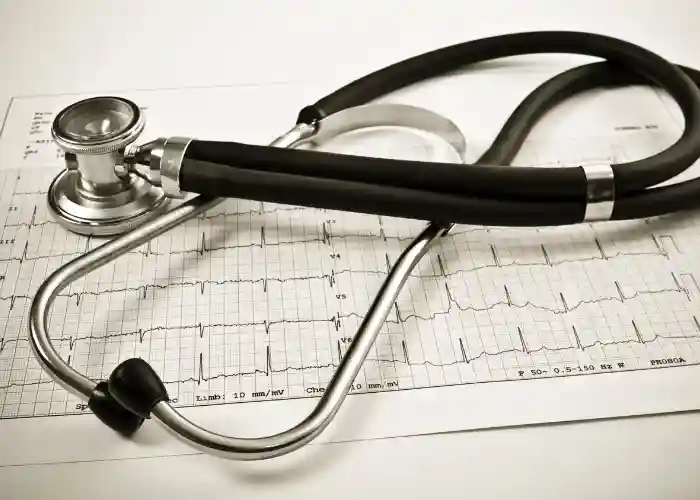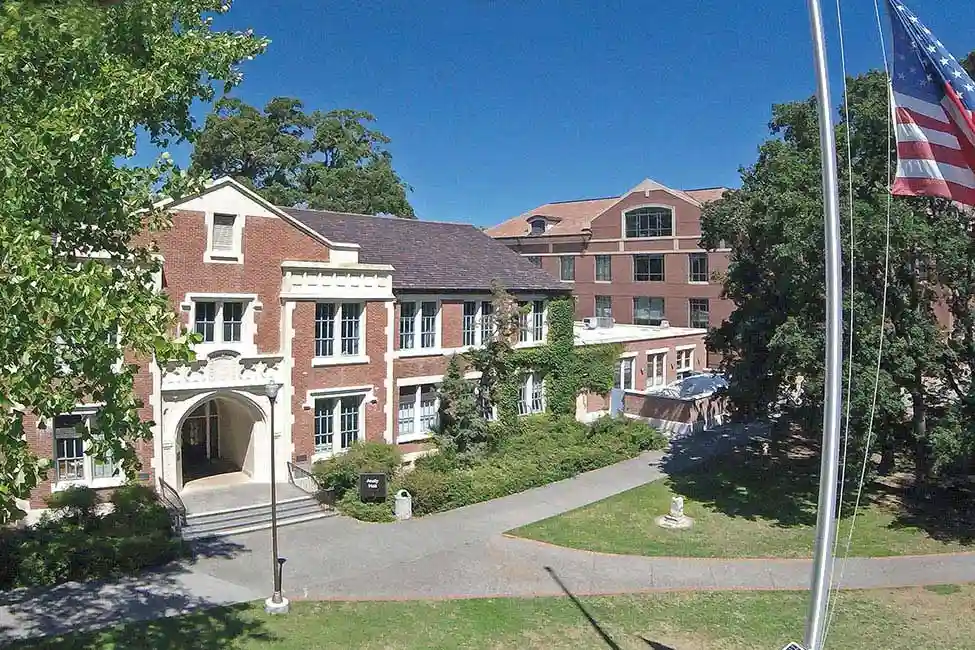The study of EKG (electrocardiogram) telemetry is the analysis of the electrical activity of the heart, as recorded by an electrocardiogram.
An electrocardiogram is a non-invasive test that measures the electrical signals generated by the heart as it beats. The test is typically performed by placing electrodes on the chest, arms, and legs of a patient, which record the electrical signals produced by the heart. These signals are then displayed as a series of waveforms on a monitor or printed out on paper.
The study of EKG telemetry involves interpreting the patterns and rhythms of the EKG waveform to diagnose various cardiac conditions, such as arrhythmias, ischemia, and infarction. EKG telemetry is used in a variety of clinical settings, including emergency departments, intensive care units, and cardiac catheterization labs, to help guide treatment decisions and monitor the effectiveness of interventions.
What does the study of EKG/Telemetry consist of?
The study of EKG/Telemetry involves several components, including:
- Anatomy and physiology of the heart: Understanding the structure and function of the heart is crucial to interpreting EKG telemetry results. This includes knowledge of the cardiac conduction system and the electrical pathways that control the heart's rhythm.
- EKG interpretation: The interpretation of EKGs involves identifying normal and abnormal waveforms and rhythms, and understanding the significance of these findings in the context of the patient's clinical presentation.
- Cardiac arrhythmias: Understanding the various types of arrhythmias, including their causes, symptoms, and treatment, is an essential component of EKG/Telemetry study.
- Pharmacology: Knowledge of the pharmacology of cardiac medications, including anti-arrhythmics, is essential to understanding how medications affect the heart's electrical activity and EKG telemetry readings.
- Patient monitoring: Understanding how to use telemetry monitoring equipment and interpret telemetry data is crucial in clinical settings where continuous EKG monitoring is necessary. This includes knowledge of telemetry lead placement, telemetry monitoring protocols, and troubleshooting telemetry equipment.
Overall, the study of EKG/Telemetry requires a solid understanding of cardiac physiology, electrical conduction, arrhythmias, and patient monitoring, as well as the ability to interpret complex waveforms and telemetry data.

What are the benefits of studying EKG/Telemetry in the U.S.?
Studying EKG/Telemetry in the U.S. offers several benefits, including:
- High demand for EKG/Telemetry technicians: There is a high demand for EKG/Telemetry technicians in the U.S. due to the increasing prevalence of cardiac diseases and the aging population. Therefore, studying EKG/Telemetry can lead to a promising career with job security and good salary prospects.
- Opportunities for specialization: EKG/Telemetry is a specialized field, and there are opportunities to further specialize in areas such as cardiac catheterization, electrophysiology, and echocardiography. Specialization can lead to higher salaries and more advanced job opportunities.
- Diverse employment settings: EKG/Telemetry technicians can work in various healthcare settings, including hospitals, clinics, and cardiac catheterization labs. This offers diverse employment opportunities and the chance to work in different healthcare environments.
- Contribution to patient care: EKG/Telemetry technicians play an essential role in patient care by providing critical information on a patient's heart function. They assist physicians and other healthcare professionals in the diagnosis and treatment of cardiac diseases, which ultimately improves patient outcomes.
- Advancements in technology: With advancements in technology, EKG/Telemetry is becoming more sophisticated, and there is a need for skilled technicians who can work with the latest equipment and software. Studying EKG/Telemetry in the U.S. provides access to state-of-the-art technology and training.
Overall, studying EKG/Telemetry in the U.S. offers numerous benefits, including job security, diverse employment settings, opportunities for specialization, and the chance to contribute to patient care in a critical field of healthcare.

What colleges and universities in the U.S. have strong EKG/Telemetry programs?
There are several colleges and universities in the U.S. that offer strong EKG/Telemetry programs. Here are a few examples:
- Houston Community College: Offers an Associate of Applied Science in Electrocardiography and Telemetry that prepares students for careers as EKG technicians or telemetry technicians.
- Broward College: Offers a Cardiovascular Technology program that includes coursework in EKG/Telemetry, as well as other cardiovascular specialties.
- Drexel University: Offers a Bachelor of Science in Cardiovascular Technology that includes a concentration in EKG/Telemetry. This program is designed for students who want to pursue careers in cardiac rehabilitation, non-invasive cardiology, or cardiac electrophysiology.
- University of Wisconsin-Milwaukee: Offers a Bachelor of Science in Diagnostic Medical Sonography that includes coursework in EKG/Telemetry. This program prepares students to become cardiovascular sonographers who use ultrasound to create images of the heart and blood vessels.
- CUNY New York City College of Technology: Offers an Associate of Applied Science in Cardiovascular Technology that includes a specialization in EKG/Telemetry. This program prepares students for careers as cardiovascular technologists who perform diagnostic tests and assist physicians in the diagnosis and treatment of heart disease.
These are just a few examples of colleges and universities in the U.S. that offer strong EKG/Telemetry programs. Students should research and evaluate different programs based on their individual needs and career goals. It is essential to consider factors such as program accreditation, curriculum, clinical experience opportunities, and job placement rates when choosing an EKG/Telemetry program.
What community colleges have strong EKG/Telemetry programs?
There are several community colleges in the U.S. that offer strong EKG/Telemetry programs. Here are a few examples:
- Houston Community College: Offers an Associate of Applied Science in Electrocardiography and Telemetry that prepares students for careers as EKG technicians or telemetry technicians.
- Broward College: Offers a Cardiovascular Technology program that includes coursework in EKG/Telemetry, as well as other cardiovascular specialties.
- CUNY New York City College of Technology: Offers an Associate of Applied Science in Cardiovascular Technology that includes a specialization in EKG/Telemetry. This program prepares students for careers as cardiovascular technologists who perform diagnostic tests and assist physicians in the diagnosis and treatment of heart disease.
- Wake Technical Community College: Offers an Associate in Applied Science in Cardiovascular Sonography that includes coursework in EKG/Telemetry. This program prepares students for careers as cardiovascular sonographers who use ultrasound to create images of the heart and blood vessels.
- College of DuPage: Offers a Cardiovascular Technology program that includes a specialization in EKG/Telemetry. This program prepares students for careers as cardiovascular technologists who perform diagnostic tests and assist physicians in the diagnosis and treatment of heart disease.
These are just a few examples of community colleges in the U.S. that offer strong EKG/Telemetry programs. Students should research and evaluate different programs based on their individual needs and career goals. It is essential to consider factors such as program accreditation, curriculum, clinical experience opportunities, and job placement rates when choosing an EKG/Telemetry program.

What kind of career opportunities will I have after studying EKG/Telemetry in the U.S.?
Studying EKG/Telemetry in the U.S. can lead to several career opportunities in healthcare. Here are a few examples:
- EKG Technician: EKG technicians are responsible for administering electrocardiogram tests to patients to measure the electrical activity of the heart. They work under the supervision of physicians or other healthcare professionals and prepare patients for the procedure, place electrodes on the patient's chest, and operate the EKG machine.
- Telemetry Technician: Telemetry technicians monitor patients' heart rhythms through remote telemetry systems that send signals from the patient's body to a central monitoring station. They observe the readings and report any abnormalities to the appropriate healthcare professional.
- Cardiac Monitor Technician: Cardiac monitor technicians use specialized equipment to monitor patients' heart rates and rhythms continuously. They identify any abnormalities and alert physicians or other healthcare professionals to any changes in the patient's condition.
- Cardiovascular Technologist: Cardiovascular technologists perform diagnostic tests such as echocardiograms, cardiac stress tests, and electrocardiograms. They assist physicians in the diagnosis and treatment of heart disease and other cardiovascular conditions.
- Non-Invasive Cardiac Specialist: Non-invasive cardiac specialists perform a range of diagnostic tests, including electrocardiograms, stress tests, and Holter monitoring. They use this information to help physicians diagnose and treat patients with heart disease and other cardiovascular conditions.
- Electrophysiology Technologist: Electrophysiology technologists work in cardiac catheterization labs and assist physicians in the diagnosis and treatment of cardiac arrhythmias. They operate specialized equipment to monitor the electrical activity of the heart and help physicians locate and treat areas of abnormal heart tissue.
Overall, studying EKG/Telemetry in the U.S. can lead to several rewarding career opportunities in the growing field of cardiac care.









